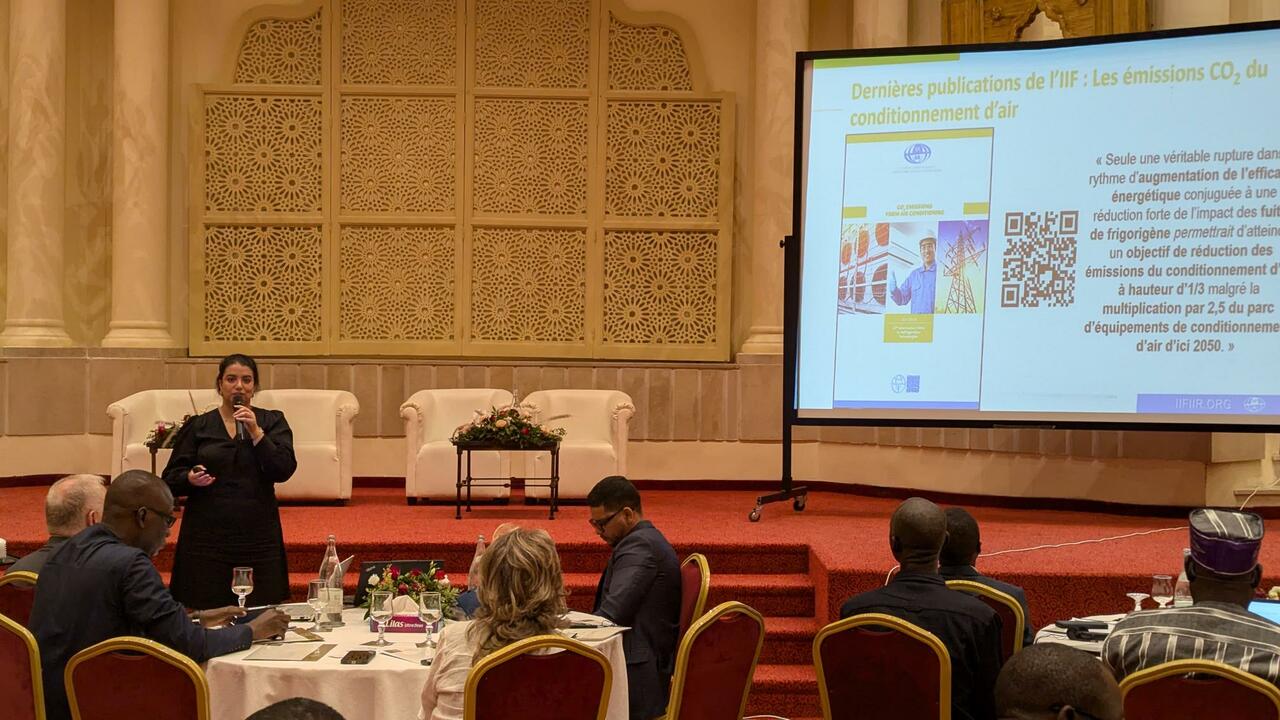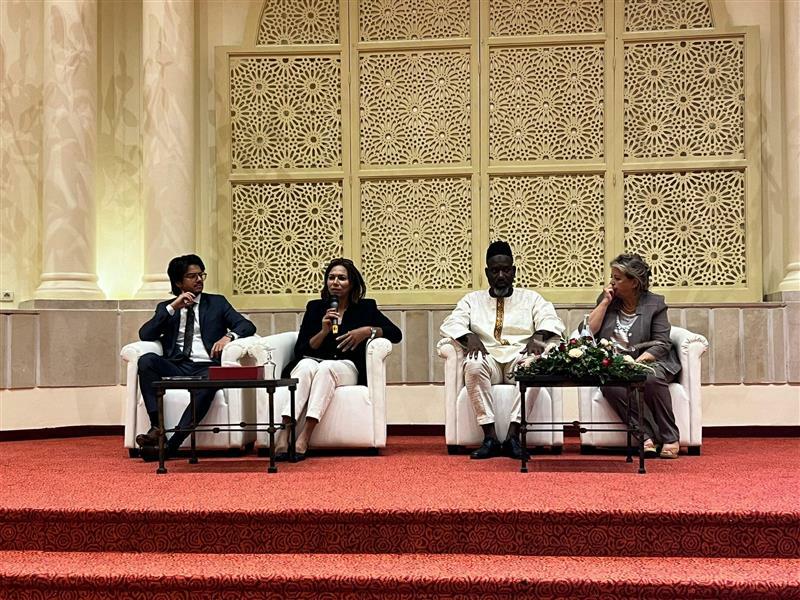IIR actively involved in the French-speaking African edition of the Twinning Workshops for Montreal Protocol officers, energy policymakers and finance officials
Officials from 21 French-speaking African countries gathered in Tunis for the third Twinning Workshops, focusing on sustainable refrigeration and energy efficiency. Souhir Hammami and Marco Duran from the International Institute of Refrigeration delivered key presentations and moderated strategic discussions.
On October 10-11, officials from 21 French-speaking African countries were convened in Tunis, Tunisia for the third edition of the Twinning Workshops for Montreal Protocol officers, energy policymakers and finance officials, organised by UNEP’s OzonAction. The workshops aimed to build capacity, raise awareness of the Montreal Protocol, mobilise resources and strengthen collaboration to deliver more affordable and sustainable refrigeration.
The International Institute of Refrigeration was invited as an expert trainer and was represented by Souhir Hammami, Director of Scientific and Technical Information, and Marco Duran, who recently joined our team as Head of Policy and Global Partnerships.
Ms. Hammami provided a keynote presentation on the crucial role of energy efficiency in the refrigeration sector, and on the next morning Mr. Duran presented on the policies and regulations to drive energy-efficient and climate-friendly refrigeration. They also assisted with the organisation by moderating breakout sessions on how to establish interrelations across officials’ mandates and map relevant stakeholders for future engagement.


The previous editions of the Twinning Workshops were held in 2018 and 2019, in the context of the Kigali Amendment to the Montreal Protocol. This Amendment was introduced to reduce GHG emissions by phasing down high global warming potential hydrofluorocarbons (HFCs), commonly used as refrigerants in the sector, and by increasing energy efficiency of refrigeration technologies to reduce emissions associated with the fossil-fuel sourced electricity needed for their operation. This 2024 edition added the participation of the national finance mechanisms focal points to increase collaboration in mobilising funds.
The objectives of the workshops were to : develop better coordinated policies and planning for a joint refrigerant and energy efficiency transition; acknowledge progress and share experiences and best practices implemented since previous workshop editions; identify financing synergies such as through the Multilateral Fund to the Montreal Protocol, the Green Climate Fund, the Global Environmental Facility, philanthropy, and other available resources; reinforce communication and advocacy, and encourage focal points to maintain regular coordination after the workshops.
